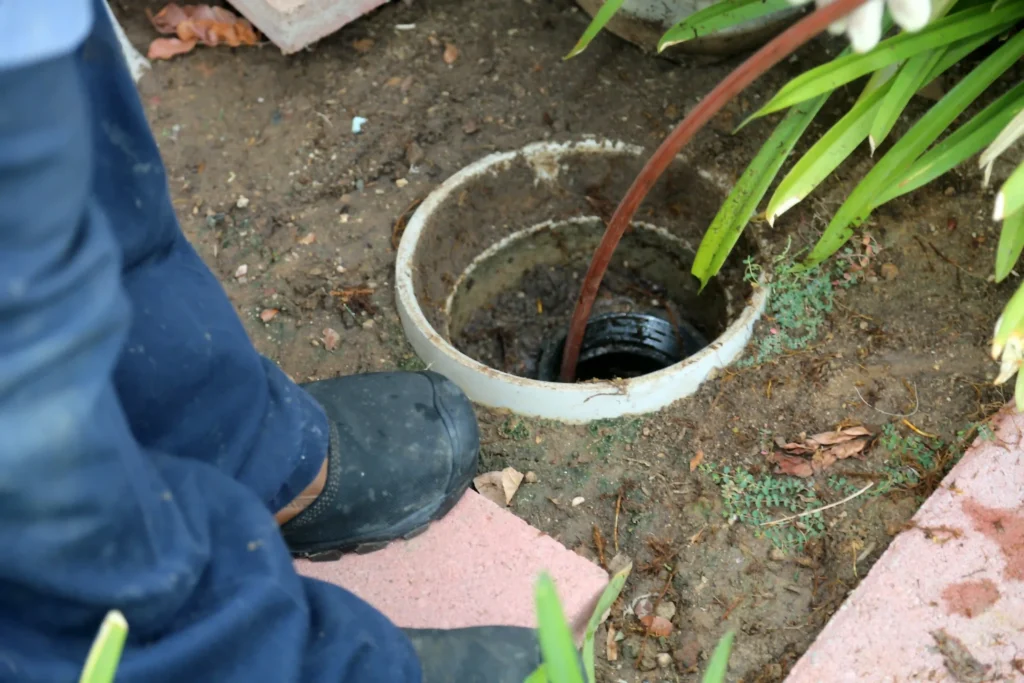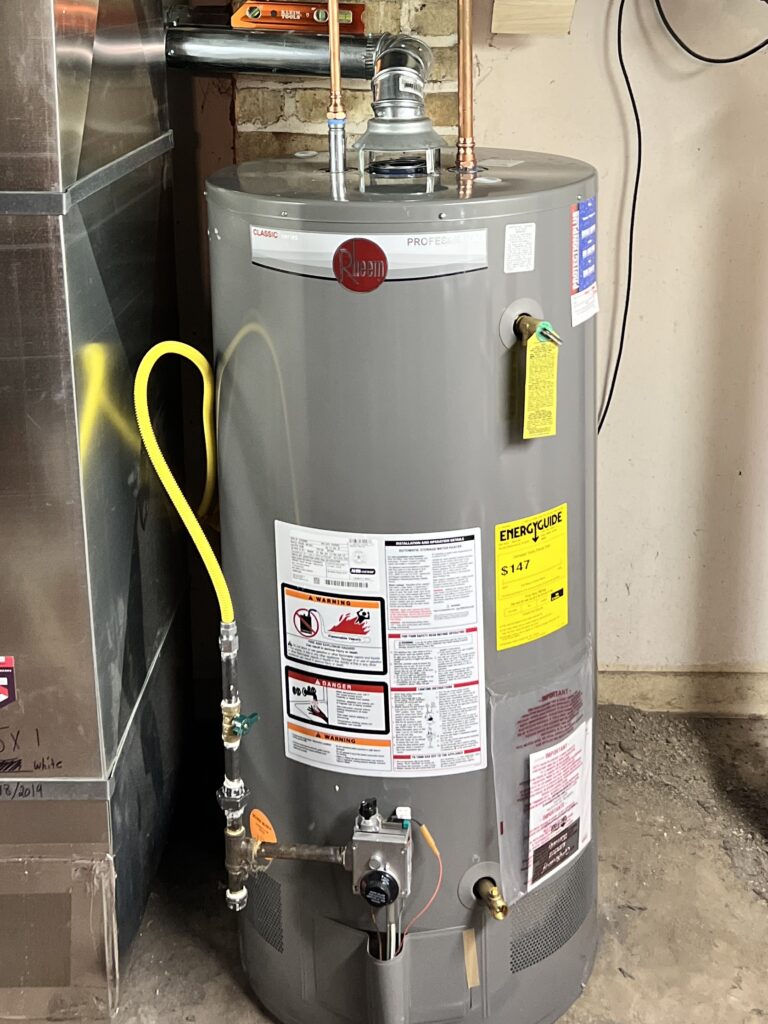

Blog
Our HVAC Apprenticeship Program: Your Path to a Highly Successful Career
As they prepare to graduate from high school, many young adults are finally beginning to make decisions about what they want to do with their lives. Most are encouraged to pursue a four year degree, but that path isn’t for everyone.
Some people are better suited to join the workforce right out of high school in skilled trade jobs that offer hands-on training and experience that starts right away. If you’re one of those people, you may wonder if there’s even a place for you on this path. The answer is “yes.”
Pursuing a career in the skilled trades offers the opportunity to get hands-on work experience and continued on-the-job training to hone your skills as your career unfolds. Apprenticeship programs also allow you to earn money and gain experience while you learn and develop your skills.
On average a licensed journeyman can make a starting salary range between $55,000-$60,000 per year. Additionally, according to Apprenticeship.gov 92% of workers retain employment after completing their apprenticeship.
Here at Bell Brothers, we have an HVAC apprenticeship program that provides the training and experience for a rewarding career. To get more insight into the value of an apprenticeship program, we chatted with two participants:
- Brandon Reynolds, residential installer who graduated from the program two years ago
- Jake Matthews, a student in his second year of the program
Q: How did you get connected with the Bell Brothers HVAC Apprenticeship Program?
Brandon: “When I was in high school, I actually hadn't even thought of going into a trade. But then I got some information about a trade program and saw how much money I could make by the end of four years and thought, ‘Why wouldn’t I do that?’ It didn’t cost me any money and I earned a paycheck while I learned.
“It was very important to me to work for a company that had an in-house apprenticeship program and, after working for another company’s apprenticeship program, I transferred into year two of the program here at Bell Brothers.”
Jake: “I always knew I wanted to go into HVAC service because of how diverse it is. You get to have your hands on a lot of different things like heating and cooling, plumbing and electrical. So I started applying for jobs with HVAC contractors.
“At the time, I didn’t know Bell Brothers had in-house training but I’m glad I found out. It’s not something a lot of companies have, so I’m grateful to have been hired and have the opportunity to learn on the job.”
Q: What do you enjoy most about the program?
Brandon: “What stuck out to me the most was how they helped prepare us for our HVAC Journeyman license test. There’s a whole chapter related to taking this test where we learn out of the book, but they also give us additional instruction to help us prepare. That’s a hard test for some people to take and I think Bell Brothers does a great job of helping us succeed.
“There was also an electrical chapter where they set up an electrical board and we got to hook up wires, learn how to make circuits and learn how electricity works. So I think they do a good job of integrating labs with real-world needs for the job.”
Jake: “I like how we get to learn everything in a classroom, but then we get to go out and see how the concepts we’re learning about are applied to real work in the field. That makes it easier to remember what you’re learning so you can have discussions about how you can do those things better.
“One of my favorite types of projects that I do with Brandon is home remodels. Every house is different and comes with a new challenge. In many cases, the houses weren’t even built for cooling because it didn’t exist when they were built. So we have to try to find ways to add ductwork and cooling without damaging the home. We recently faced this on a project where we renovated an old home in the Sherman Hill neighborhood of Des Moines. It was a fun challenge.”
Q: Does the program guide students towards one particular expertise, such as commercial or residential, or do you get a taste of everything?
Brandon: “It depends on the chapter. For example, if you’re learning about boilers and chillers, that would be primarily commercial focused. If you’re learning about mini splits, that would be more residential focused. And chapters related to service kind of tie into all of it.
“I have always primarily done residential work. While I was in the program, I mostly assisted a lead technician as their partner, but now I’ve moved into a lead role.”
Q: Once you graduate, are there opportunities for continuing education and refining your skills?
Brandon: “Yes, we have to complete a certain number of continuing education hours to maintain our Journeyman License and Bell Brothers provides those classes. They pay for two classes in the spring and two classes in the fall. There’s a lot of opportunities to keep learning about all the different areas of HVAC service.”
Q: Jake, what are you looking forward to in your third and fourth years?
Jake: “Right now, I do a lot of installs, but I’m really looking forward to learning more about diagnosing and fixing problems on systems. I’ll get to learn about that through our classwork and during labs out in the field.”
Q: Where do you hope your career goes in the future?
Brandon: “I consider myself to be a big-impact person. I like to have as big of an impression on a company as I can, so for me, whether that looks like management or taking over bigger projects, doing sales or whatever it is, that’s what I want. Any sort of way that I can make an impact on a larger scale is where I'd want to go.”
Jake: “My number-one goal is to get my Journeyman License. That is something I need to do within the next three years and then get into service. I want to be the kind of person who can do anything the company needs. Any problem that needs to be solved or anything that needs to be fixed, I want to do it.”
Q: What advice would you give to someone else who is considering entering an HVAC apprenticeship program?
Jake: “Do it now. Don’t wait. I wish I had started this program right out of high school. It takes a lot of time to start over and learn a new trade, so the earlier you get started, the better.”
Brandon: “That’s great advice. There’s no reason to wait. If you like craftsmanship or you like helping people and diagnosing problems, there is a place for you. Plus, you get paid while you learn, so there really is no reason not to do it.”
Enjoy a Rewarding HVAC Apprenticeship Job
We need hard-working, self-motivated workers. If you have that part down, we’ll do our part to help you thrive in an HVAC career. That’s what our apprenticeship program is all about. Also, you may learn more about the Skilled Trades Alliance we formed with other local partners. It has been tremendously successful at showing a new generation of skilled trade workers the importance of apprenticeship programs.








